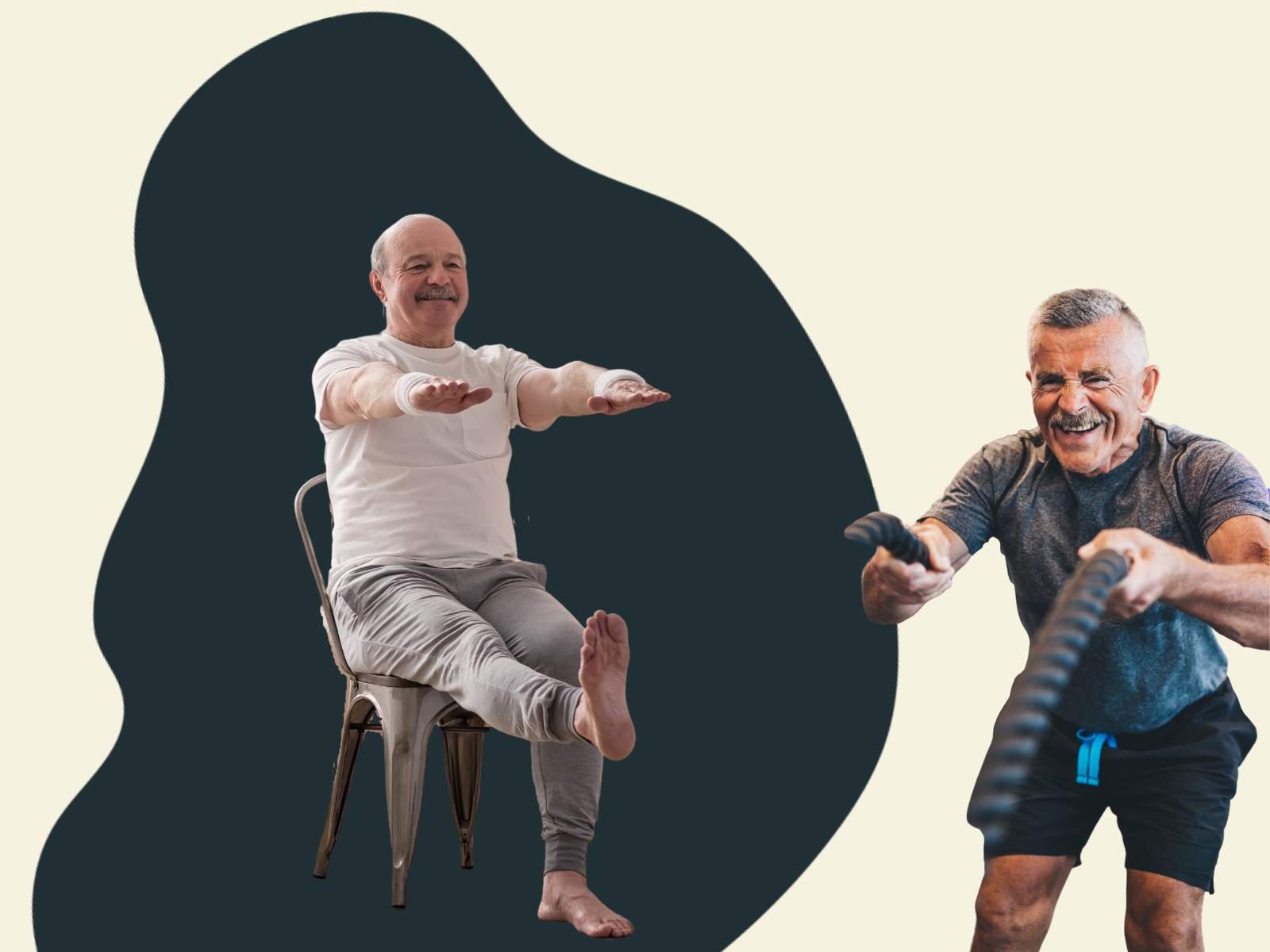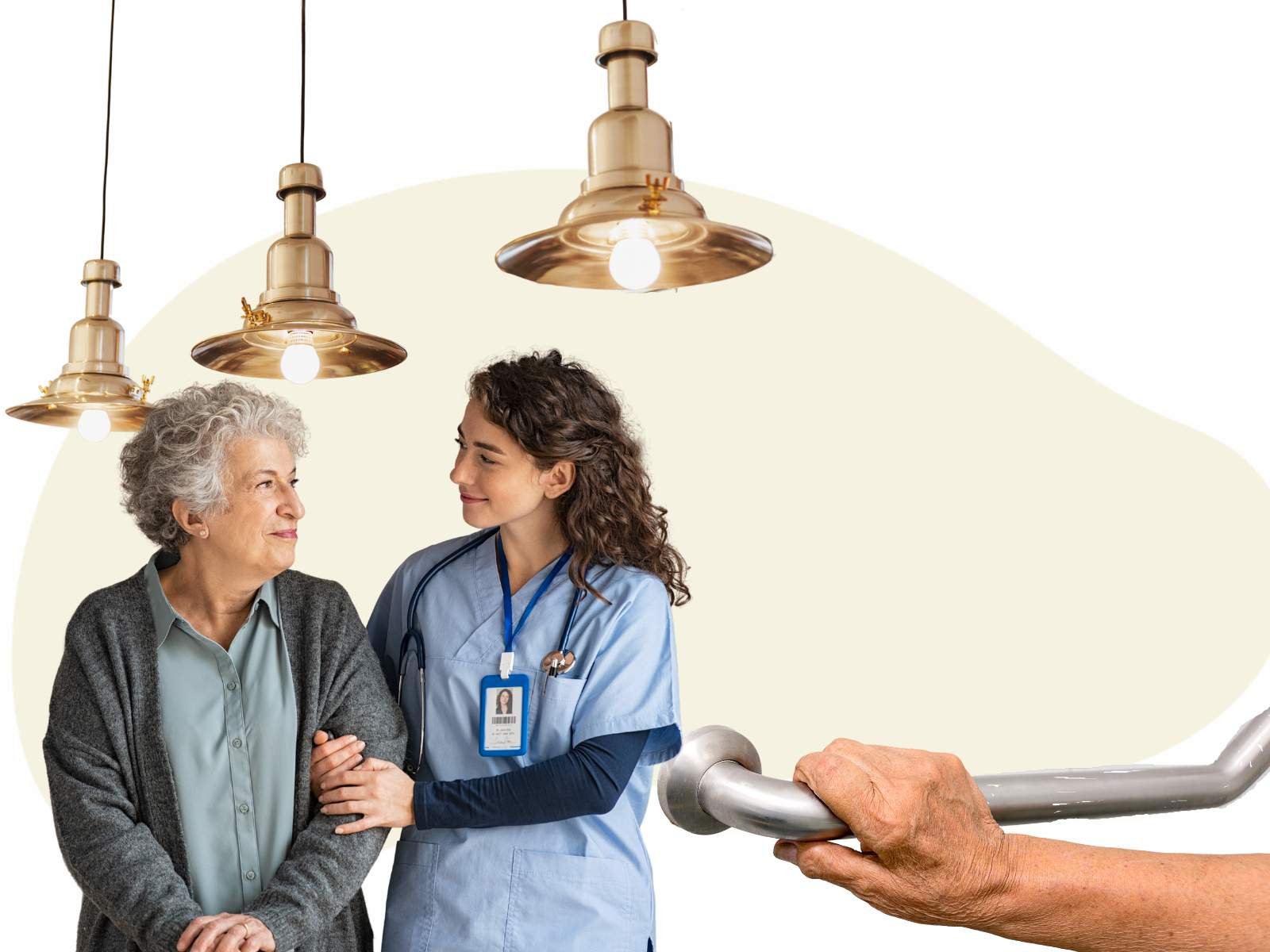Key Takeaways:
- Falls can be life-changing events and negatively impact quality of life, especially among seniors.
- Fortunately, regular physical activity and physical therapy are ways to maintain strength and prevent falls.
- Modifying environments with grip rails or non-slip surfaces are some other examples of fall prevention strategies.
- Maintaining your health with annual physicals, good nutrition, and a holistic approach can also go a long way to stay strong and healthy.
.png)
National Fall Prevention Awareness Month is a great opportunity to educate ourselves on preventing falls and reducing the risk of injury in seniors. As an audiologist, I have seen firsthand how dizziness and imbalance can dramatically affect a person's quality of life. Falls can be hazardous, causing serious injuries and hospitalization. And to add insult to injury, falls are also the leading cause of injury-related death in seniors. Fortunately, there's a lot we can proactively do to prevent falls. This article will explore why fall prevention is crucial for seniors and how they can maintain their health and quality of life.
Falls Change Lives
Falls have a significant impact on a person's quality of life. It makes sense when you think about it. Falls can cause serious injuries, leading to other downstream health effects. In graduate school, I worked on weekends in a nursing care facility. I recall one patient who suffered a debilitating hip injury from a simple misstep. The resulting bedrest led to isolation, confinement, and a loss of mobility. This patient's entire demeanor changed, and even after recovery, she struggled to move and enjoy her previous activities. As we age, we become more prone to these types of injuries, and recovering from a fall at this stage in life can take its toll.
Falls can lead to the loss of mobility, increased fear of falling, social isolation, and depression. Additionally, seniors who have fallen are at a higher risk of falling again due to weakened muscles and sedentary recovery periods. Even if they do not physically sustain injuries, the fear of falling can prevent them from participating in daily activities, affecting their emotional and mental well-being. Therefore, preventing falls should be a top priority for every senior. The question is, when should they start?

Balance and Strength are Key
Maintaining good balance is the key to preventing falls. Poor balance increases the risk of falls, especially in seniors. Maintaining balance involves coordination between different systems in the body, such as the vestibular system, visual system, and sensorimotor system. If any of these systems are impaired, it can lead to dizziness and imbalance. Individuals with hearing loss are also at a greater risk of falls, as the inner ear balance system may also have dysfunction. Therefore, it is essential to maintain these systems and ensure that hearing loss is addressed promptly.
Keeping muscles strong and healthy supports the body and makes it easier to catch yourself if you do fall. Walking, gardening, and strength training can help improve balance and muscle strength. Keeping active maintains muscle, and adding resistance training is another great way to maintain or build strength. These activities also have the added benefit of improving cardiovascular health, which is crucial for overall well-being. Finding activities you enjoy also ensures you'll keep up with your physical fitness.

How You Can Be Proactive
One proactive approach that seniors can take advantage of is utilizing Medicare, which includes coverage for physical therapy assessments. These assessments, conducted by licensed physical therapists, are pivotal in identifying weaknesses or deficiencies that may increase the risk of falls. Medicare Part B generally covers 80% of the approved cost for outpatient therapy services, including physical therapy assessments, after the annual deductible is met. Following these assessments, the physical therapist develops a personalized training regimen to address and strengthen identified vulnerabilities. This Medicare benefit plays an instrumental role in promoting seniors' health and potentially preventing falls by harnessing the expertise of physical therapy professionals.
Environmental Modifications
Aside from maintaining physical health, environmental factors play a significant role in preventing falls. As we age, our reaction time slows down, making it harder to catch ourselves if we trip or slip. Therefore, it is essential to make modifications in the home to reduce the risk of falls. Some easy modifications include:
- Installing grab bars in bathrooms and stairways
- Removing loose rugs or securing them with non-slip pads
- Adding lighting in areas that are frequently used, especially at night.
Annual Wellness Visits
Annual wellness visits are crucial for seniors, allowing healthcare professionals to assess and address potential fall risk factors. Doctors can review medication side effects that may increase the risk of falls, check for vision or hearing impairments, and provide recommendations on improving balance and strength. Annual wellness visits also allow for early detection of any health issues contributing to falls.
Don't Wait - Start Today
It's never too early to start taking steps towards preventing falls. Whether you're a senior yourself or have a loved one who is, incorporating balance and strength exercises, making environmental modifications, and scheduling annual wellness visits are all essential in maintaining health and reducing the risk of falls. As we age, our bodies may become more prone to falling, but that doesn't mean
To maintain balance and prevent falls, seniors should engage in regular exercise. Exercises that enhance balance, flexibility, and strength are crucial. These exercises may include yoga, Tai Chi, or simply walking. A physical therapist can also create a personalized exercise program to match individual needs. Home modification can also be advantageous in preventing falls. For example, removing clutter, installing grab bars and handrails, and improving lighting conditions can reduce the risk of falls.

Medications
Certain medications can have side effects that affect balance and coordination or cause drowsiness. It’s best to be cautious when taking medication and discuss any side effects with your doctor. It is also crucial to avoid alcohol as it can harm balance and coordination, especially with long-term, heavy consumption.
Healthy Nutrition
It is also essential to maintain a healthy diet. A balanced diet with sufficient vitamins and minerals can help maintain overall health and strength, reducing the risk of falls. Many seniors may have vitamin D deficiency, which can affect bone strength. Supplements, in addition to proper nutrition, can help address this deficiency.
Conclusion
Falling need not be an inevitable part of aging. With the proper guidance, proactive measures, and adaptations, we can significantly reduce the risk of falls and ensure a safer, more comfortable lifestyle for seniors. As we continue to age, let's remember that it's not only about adding years to life but life to years. Focusing on overall well-being can make our life more enjoyable. Let's pledge today to create an environment where every senior can live not in fear of falling but in the joy of independent living. Remember, there is always time to make a positive change!






